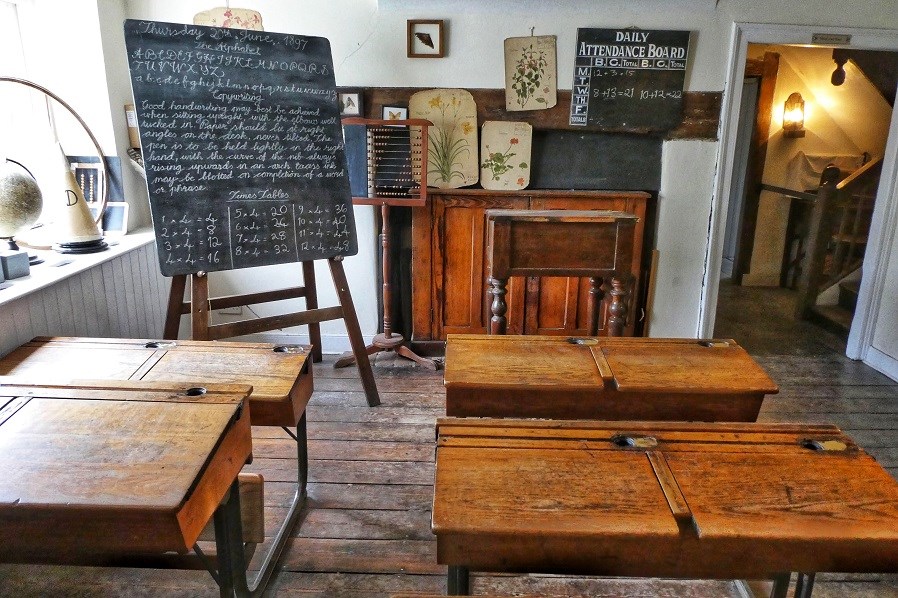
The average student in the UK now graduates with an eye-watering £36,000 in debt. It's no wonder that many parents up and down the country start to think about how to pay for tuition fees the moment their children arrive.
Is it possible to help your children and grandchildren with their student loans? Yes. And the earlier you start the better. Here are some top tips for building a nest egg for your young relatives:
Start Now!
The best time to start investing is right now. Start putting a plan in place: how much money will you need to have saved and how long do you have to save it? Many families leave it until their children are looking through university brochure before they start thinking about how they might pay for their youngster's education. But the thing about investing is,that it works better the longer you do it, thanks to the benefits of compounding.
“The sooner you start the better,” says Jason Hollands, managing director at Tilney Investment Management. “The earlier you invest the longer your money has to compound, boosting your returns and helping to grow your money faster."
If you invest £100 a month from when your child is born until they head off to university at age 18 and it grows at 6% a year, your pot will have grown to almost £39,000. Enough to cover tuition fees, as well as a beer or two at the student union bar!
Such a long investment time horizon not only gives your money longer to grow, but also gives it time to recover if there is a fall on the stock market, too, points out Adrian Lowcock, head of personal investing at Willis Owen.
Consider Regular Investing
Saving little and often is the key to long-term investing and most fund supermarkets will let you set up a regular investment plan. Like any other direct debit, these allow you to save a set amount into your chosen investments each month so you don't have to remember to do it. “Investing regularly is a good discipline,” says Hollands. “It might be more manageable for your household finances too.”
This method of investing also helps avoid the pitfall of trying to time the market, meaning you don't have to worry about the best time to invest depending on which way the stock market is moving. Regular investing lets you benefit from pound-cost averaging whereby your set monthly amount buys fewer shares in a company or units in a fund when they are most expensive, and more when they are cheaper, giving you a better deal over the lon term.
How much you save will depend on your circumstances. Hollands suggests increasing the amount each year, or each time your salary rises. You might also encourage friends and family to add to the pot instead of giving birthday or Christmas gifts.
Morningstar Investment Management's Mike Coop says families should consider topping up their children's investment pots whenever they have money to spare, too: “Adding more than usual when there is 10% plus fall in markets, for example, can help grow the pot faster as you benefit from the recovery.”
Make it Tax Efficient
A Junior Isa is the easiest and most tax efficient way to invest for children. This year the allowance increased so you can invest £9,000 each tax year for those aged 18 and under, and the returns are tax-free. Children are only able to access the money in a Jisa when they reach age 18 - although they can take control of the account and decide where the money is invested from age 16.
Those parents concerned that the money they have lovingly saved may not be used sensibly do have some other options, of course. You could use your own Isa allowance (currently £20,000 a year) and gift the money at the appropriate time, or you might consider setting up a trust, whereby you can set rules around how the money saved is spent.
Some children may still have a Child Trust Fund - a type of children's savings account which preceded the Junior Isa. CTFs have been criticised as being poor value for money in recent years and it's true that the savings rates and investment options available through Jisas tend to be much better. While the first children to have Child Trust Funds will see them mature this year, parents of younger children with a CTF can switch the account to a Jisa.
Beat Inflation
How you invest the money depends on how soon it will be accessed, but starting when your child is young should give you plenty of time. Beating inflation is key if you want to stop the value of your pot being eroded, which rules out most Cash Isas, where the interest rates are currently meagre. Hollands says: “If you are investing for a newborn baby's future then cash is a terrible place. Cash is eroded over time by inflation."
Instead, equities are often the best place for long-term investors to grow their money ahead of inflation, says Coop. However, he adds: “As you get closer to the time the money is needed, you can adjust the asset allocation to safer places such as bonds." This can help to reduce any potential impact if the stock market falls.
Be Diversified
So where should you invest for your children? Lowcock says global funds are a good bet as they offer exposure to equities across the world. They are also less risky then specialist funds which focus on particular niches.
He likes Bronze-rated Artemis Global Select, which has delivered annualised returns of 14.09% over 10 years. The fund has around half of its assets in US stocks including tech giants Amazon and Microsoft, and also invests in Japan, Europe and Asia. Morningstar analyst Fatima Khizou rates the experienced managers, who have run the fund since 2011, focusing on quality firms with high barriers to entry.
Other strong options for a Jisa, says Hollands, are the Gold-rated Fundsmith Equity and Bronze-rated Lindsell Train Global Equity funds. Both of these funds have delivered stellar annualised gains of 21.32% and 16.88% over 10 years. The managers of the funds both tend towards quality consumer companies with strong brands and loyal customers.
Of course, not every child will be destined for a degree, but there are plenty of other reasons to build a nest egg for your children or grandchildren whether its helping them buy their first car, get a foot on the property ladder, or take an around-the-world trip.
"No matter what investments you choose or how much you invest, investing for your child’s future could potentially help transform their lives, so you should definitely think about doing it," says Lowcock. "The sooner, the better."



























